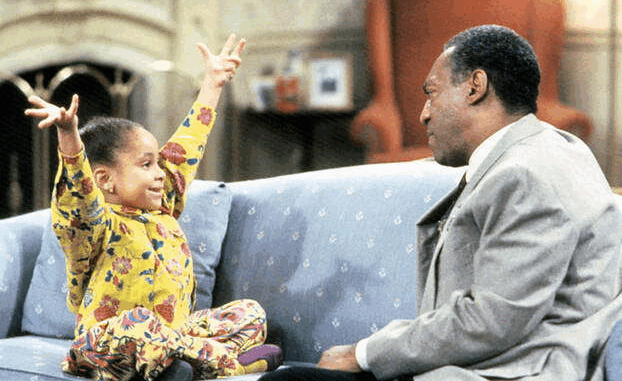
When audiences tuned into NBC on Thursday nights in the 1980s, they were greeted not just by a sitcom, but by a new kind of father figure — Dr. Heathcliff Huxtable. Played by Bill Cosby, Cliff wasn’t just funny and charming. He was revolutionary. As the patriarch of The Cosby Show, Cliff Huxtable became an international symbol of what fatherhood could be: nurturing, wise, and unapologetically loving.
The Birth of a Television Icon
Cliff Huxtable was unlike most TV dads of the era. He wasn’t gruff or distant. He didn’t rule his family with an iron fist. Instead, he listened, laughed, made mistakes, and modeled emotional intelligence. He was a man who loved jazz and pudding pops — but above all, he loved his wife Clair and their five children.
Through Cliff, The Cosby Show redefined the cultural narrative of the American father, particularly the Black father. At a time when media often painted Black men as absent or dysfunctional, Cliff stood tall as a caring, capable, and deeply involved parent.
A Father for the World
What made The Cosby Show truly exceptional was its universal appeal. Despite its deep roots in African American culture, the show resonated globally. It was syndicated in over 100 countries and dubbed in dozens of languages, becoming a global touchstone.
From South Africa to Sweden, viewers connected with Cliff Huxtable’s relatable humor and warmth. In many homes, he became the ideal dad — a model of patience and principle, delivering life lessons without preaching.
Humor With Heart
Cliff’s character was the heartbeat of The Cosby Show. Whether delivering babies by day or dispensing wisdom by night, he approached life with wit and grace. His comedic timing, paired with the show’s smart writing, turned ordinary family moments into memorable scenes.
Episodes like “Theo’s Shirt,” “The Juicer,” or “Cliff’s Nightmare” were not just hilarious — they also carried meaningful messages about responsibility, discipline, and unconditional love.
Complicated Reflections
In recent years, Cliff Huxtable’s legacy has been deeply entangled with the personal downfall of the man who portrayed him. Bill Cosby’s criminal convictions and the gravity of the allegations have forced many to reassess their relationship with the show.
Yet for some, the character of Cliff Huxtable still stands apart — as a fictional creation who represented ideals far greater than his actor’s real-life actions.
Cliff Huxtable’s Lasting Impact
TV dads like Philip Banks (The Fresh Prince of Bel-Air) and Dre Johnson (Black-ish) owe a debt to Cliff. The template he created continues to shape how fatherhood is portrayed on screen — diverse, dynamic, and emotionally present.
Even now, in retrospectives and media studies, Cliff Huxtable is remembered as a symbol of aspirational parenting, proof that comedy can inspire, uplift, and even heal.